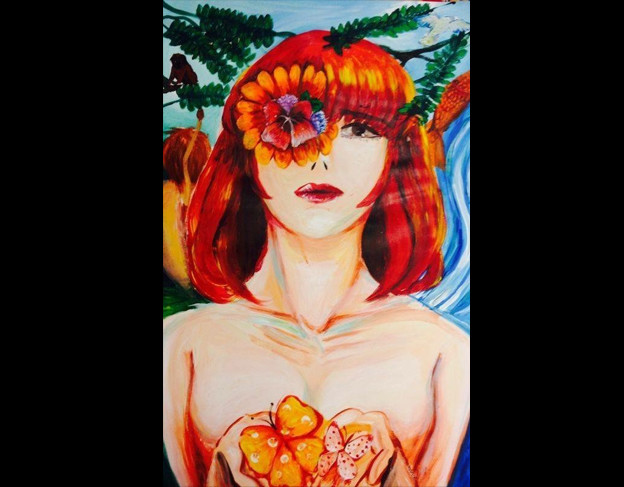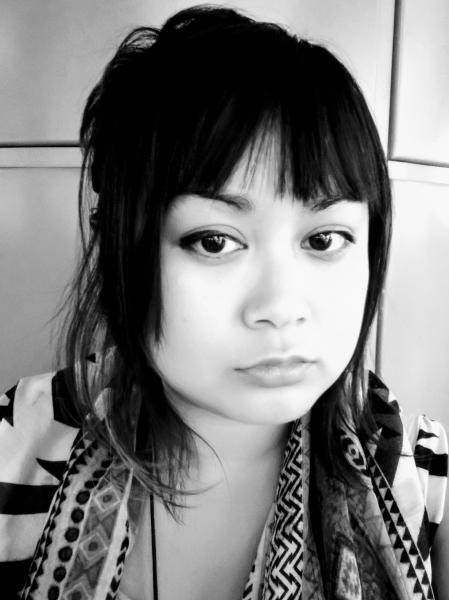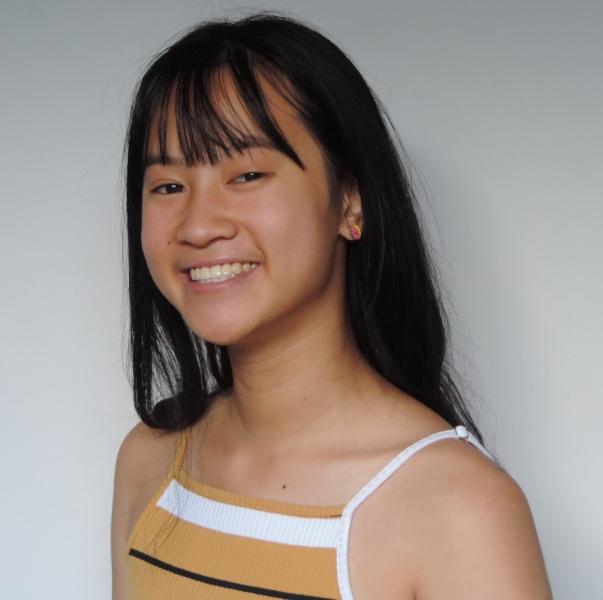These ladies are not afraid to rage against the machines: part two
Kiwi Asian women poets have strong opinions. [Part two]

Kia ora ano.
In part two of this commentary post, I will include several poems by the poets featured in part one, furher emphasizing their frankness and willingness to speak their minds about cultural connections and disconnections as Kiwi Asian poets, as well as about how they see Aotearoa New Zealand per se.
I will also feature Shasha Ali and her own comments with regard to the questions I asked other poets, in part one.
Let’s commence with a poem by Aiwa Pooamorn. This poem really reinforces the rage felt at times by these women, caught between cultures.
Thai Chinese Stay At Home Mother
Welcome to the Stay at Home Mothers Club
be prepared
to watch Thomas the Tank Engine
on repeat
pleasure yourself orgasm
after orgasm
once baby goes to sleep
and have erotic dreams
narrated by Ringo Starr
I wait
for my drunk white kiwi boy to come home
watch Coronation Street together
while we fuck on the cum stained couch
Excitement is peeking out the blinds
at the crazy corner house
lord of the flies children
waving kitchen knives about
A white old man sits on the porch
grips his taser
yells
come get it n-word
I don’t know how I ended up being
a stay at home mother
in west Auckland suburbia
Why didn’t you go on the pill
every other woman in New Zealand does
spare our kiwi men the indignity
of wearing condoms
Once in a while
I air out my dirty laundry poetry
in the town square
never mind they might make me
squat in the corner
drown me with their spit and cum
When a woman gets too powerful
she has to flee
like Thailand’s first female prime minister
Yingluck
she left her Louis Vuitton gumboot prints
all over red buffalo rice fields
opposition leader Abhisit calls her
อีโง่ ee-ngo
dumb bitch
an evil woman worse than a whore
I wish they would serve wine
at playgroup
instead of tea
like the good ol’ days
when no one judged drunk mothers
I dreamed I had an affair
with a beautiful ladyboy
my hubby says it’s cool
he’s had dreams of cheating on me too
When we have sex
I imagine I’m banging
Thai female soap opera stars
like khun Chompoo Araya
in her pink tulle dress
with tiny ruffles for days
like bags
and bags
of blushing
shrimp crackers
And I dream of going back
to the old swampy neighbourhood
in Bangkok where I grew up
munching on wild sugarcane
playing badminton over powerlines
with ah muay and ah dee noi
buying pungent prawn crackers
from the food truck auntie
her face framed
by sweet lady fingers of bananas
and round green eggplants
my mother cooks
in her kaeng tai pla
her fermented fish entrails curry
so spicy I drown in monsoon floods
a torrent gushing out of my vagina
My mother asks me why I have to go away with a dirty farang
a white playboy
even though she’s my dad’s concubine
可是世上只有妈妈好
I can never quite go back to Thailand
the same person I was
my parents say I’m too wide
to squeeze through the narrow sois
a maze of alleyways
navigated by motorbike taxis
tangled up in my sexuality
Aiwa so well encapsulates disconnection, alienation, anger, dislocation — far far better than my prose here.
How about this poem by Wen-Juenn Lee?
Prologue
Malaysia is a prologue
I am ashamed to write.
friends etched chapters out of countries
built and shaped their lives
with homes in their mouths
but Malaysia falls flat on my tongue
Malaysia is
good
or fun
but how do you condense
contented isolation
confused exhilaration
a stranger in your home
a wai guo ren
in a single word?
Shakespeare did not mean
the diaspora
when he spoke of Antony
straddling East and West
leg pillars on either side
yet I am Antony
the traitor
the foreigner
my mother says people stare at me
as if I do not feel the Otherness myself
you don’t even need to open your mouth
but where are you really from?my skin is not white
but where are you really from? I speak with an accent that clings.
The angst continues unabated.
Shasha Ali now resides in Singapore, after years spent in the skinny country, Aotearoa New Zealand. Her responses to my questions follow.
Do you ever feel that you are compartmentalized into a certain category of Kiwi writers, because of your heritage? If so, what is/are such arbitrary categories? Does such compartmentalization affect what you write? I only started writing and sharing some of my work more publicly between 2013–2015, while I was a vocalist for an Asian tau iwi feminist punk band in Auckland and working for Shakti, an immigrant women’s organization. I remember being intentional with my performances, specifically in highlighting issues related to people of color. So, I do feel that in some way, I was purposive and embodied; then determined how I wanted to be compartmentalized by the mainstream. I anticipated being called to comment, speak or write as an Asian and/or brown and/or Muslim feminist. Sometimes I even volunteered myself when I had a strong opinion to share. However, as an indigenous person in diaspora (Malay Singaporean), I am rarely referenced as such within Aotearoa’s context. These days, I try not to think about identity politics when I am writing as I am.
How about any dislocation from both the culture of your heritage and from mainstream New Zealand culture? I have noticed quite a bit of dislocation/distancing, even alienation from both sets of culture in several of your works, with the poet sometimes caught somewhere in between. Is this a factor in your own work? I grew up in a mesh of inter-tribal families and communities in Singapore, which is not uncommon for peoples of Malay origin; yet at the same time, was expected to make sense of Islamic practice, ‘Asian’ values and western media-influenced ideals. Alienation could also possibly relate to my backgrounding of having been a victim-survivor of child abuse. So even when I was growing up in Singapore, I felt like a misfit juggling emotions, experiences and making sense through writing. It is and was no surprise that I found solace through performing sajak, (native Malay poetry) in my teens then. That cultural juggling merely intensified in New Zealand as an immigrant, and continued to motivate my writing.

Relatedly, what about anger at not only mainstream Kiwi culture and its (still prevalent) stereotypes, but also ire towards some of the (still prevailing) attitudes of your heritage cultures? Again, I have noticed this aspect in several of your works. Is this a facet that impels your writing? I used to pride myself as an angry young Asian feminist in New Zealand. In fact, I remember being affirmed at every creative moment that I was able to articulate anger that resonated with other young feminists who experienced marginalization in society or within their own diasporas. After a while though, it kinda drained me. After all, I felt alone, misunderstood and the reality of being underrepresented as a minority remained. I started to feel like people liked me angry, but were not really listening.
Finally, what would you really like to see in Aotearoa New Zealand poetry? I have been based in Singapore for the last two years now. I would really love it if Aotearoa’s writers’ festivals expanded to include the work of lyricists, such as rap poets and composers. In 2017, I attended the Singapore Writers’ Festival, and you know, I had very low expectations considering the limitations on freedom of speech and expression here compared to New Zealand. However, I was amazed that they invited musicians and composers on dialogue panels to talk about their different creative writing processes, intermedia transcendence of text/paper to multidisciplinary styles of performance. It also shattered the traditionalist notion of writers as merely interested in publishing achievements, and opened up space for multigenre writers to exist, connect and belong.
A poem by Shasha follows. I do not need to decipher for you: the anguish is apparent … captured in Asia, as much as Aotearoa.
Dear Malay men
You are the bloodline
That survived on
Vessels of fish and silver
Alone not
Under the canopy of a banyan tree
Shading lovers watching sunset
Roaming hands under shirts for a last sigh
From the Sultan Mosque
Fathers gather to prayer
And mothers call you to hurry home
to no answer.
You Malay men
With your time for cigarettes, music and Kopi
In no hurry to marry
And make good
Of women
Aborting or delivering
children of Allah
Only to then be
shamed and rejected
By believers of Allah.
And yet
I defended you
Against my parents
Against the Chinese-privileged Singaporeans
Against Malaysian Malays
And against my white ex boyfriends
And still
You wouldn’t
Honour
Me.
Your Sister
Your Mother
Your never sought Daughter
Will weep no more
For you.
We will make homes
Of our wombs
Warm safe and loved
To care for seeds
Of tomorrow’s
Malay men
To heal the sorrow
Of today’s
Malay women.
Vanessa Crofskey also writes powerfully. Of course. Living in this supposedly multicultural country is not easy.
Dumplings are fake
I’m so authentic i use chopsticks to eat macaroni
watch hentai on my huawei
and go to ponsonby central to eat chinese
i don’t carry hot sauce in my bag, but i do bring soy to the party
my favourite movie of all time is studio ghibli
and my dad is the white side of the family
my phone vibrates every time a council says “diversity targets”
i get suggested ads for the national party in chinese,
and that thinkpiece on bubble tea is a redirect to my
dot com slash about me
i’m so authentic all my exes had asian fetishes
my mum she love the white man at her dinner table
he tells me to say something in my language
so i say “hello”
and he says
wow! say something else!
so authentic i hugged my granddad on my trip home
and he froze at the shock of intimacy
(we’re that great at building walls)
my great grandma would walk up and down a mountain
with bound feet and huge sacks of rice on her back
for her husband, and i can’t even text a guy back
guilt is an after school curricular
filial piety an apology
i learnt off my mum to fear a full stomach
and i’m always too heavy
my best representation is in a section of pornhub
where all the asian girls and the mixed chicks don’t speak
have big tits, and white men cum all over their faces
i posted about it on snapchat the other day
then a dude screenshotted my next selfie
so authentic i was already just a space that needed filling
something to discipline
tall poppy in a sea of lotus,
blooming
Joanna Li provided a fine diasporic poem for part one (ancestors). Not a photo of herself though. Here she is now. To wax cliché — it is good to place an appearance with a name.

I would like to conclude this commentary post with a poem by Nina Powles. It is important to point out that not all the poetry of these Kiwi Asian women poems is full of alienation and anger. Of course not. But, the merging/non-merging of cultures for them all, is never far from the forefront of their work, as here. This is the future of our poetry of whetever genre. It will not vanish; it cannot.
It is here to stay. No amount of whitespreading* will dismiss this.
Ode to the Huangpu River
O river of cellophane hearts / river of plastic and metal and bone / curled river of pretend pearl / I know that bodies once floated in your arms / Now you carry all my fragments to the ocean / in your waves of artificial light / in your hot fluorescent current / You river of birdcages / River of burning paper tigers / River of glow-in-the-dark stars and planets and blue whales / falling and falling from the ceiling / their bioluminescent bodies sink into the softness of your bed and stay there / finally at rest / You are artificial light that will not fade / You are blue lanterns / You are polyester orchids / You find yourself in pieces / strewn across the Pacific
Xie xie.
Terima kasih.
Tēnā koe.
Thank you.
Salamat po.
Dor je sai Pauline, for your fine artwork.
[* whitespreading — a logocentric rationalization by noncolored people, whereby the work of writers and thinkers from other cultures becomes incorporated into expanded yet still noncolored topo1 and tropes. See also Stephen Greenblatt (1990) re: subversive discources and their incorporation into dominant discources.]
Feasting in the Skinny Country: Aotearoa New Zealand Poetry